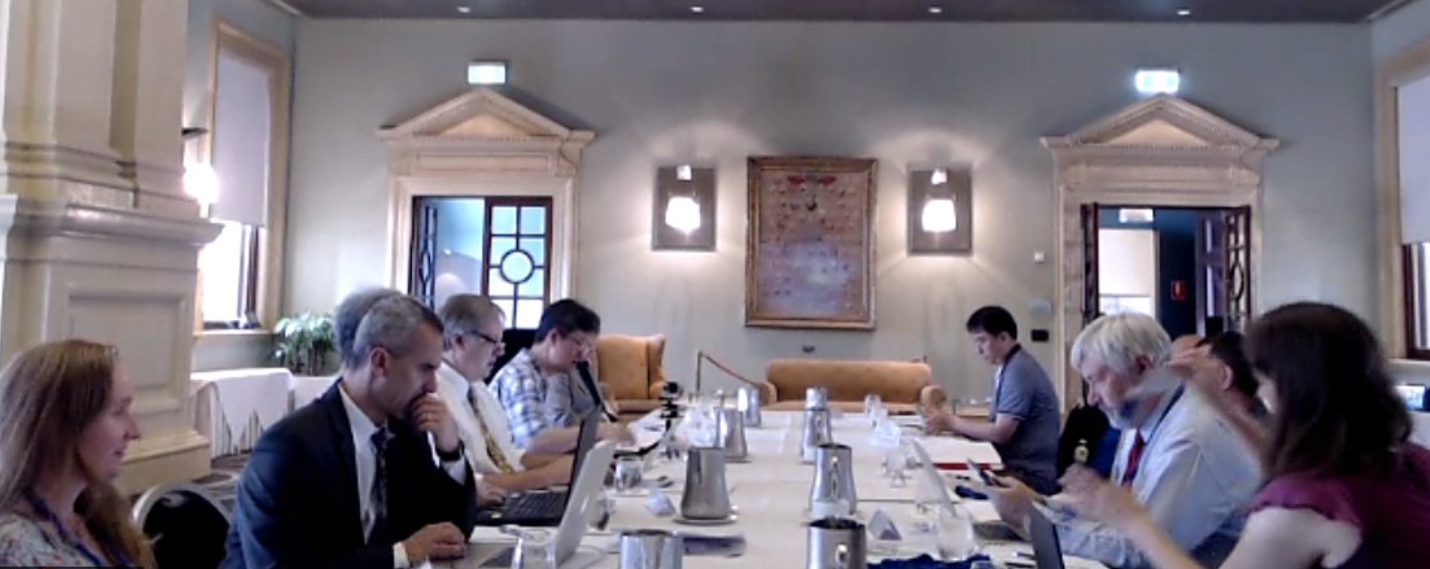Global problems need global solutions. TERN has always recognised that when we tackle complex issues such as climate change or biodiversity loss we need an international approach if we are to truly make a difference.
To this end, TERN has just hosted three days of collaborative meetings with leaders of analogous ecosystem observing networks from around the world.
These landmark meetings provided the opportunity to discuss strengthening existing linkages, fostering global collaboration, and taking the next steps in creating an ecosystem observatory at a global scale.
Collaborating w leaders of world’s ecosystem observing networks: https://t.co/zJM9sepQec #NCRIS @NEON_sci @Saeonews pic.twitter.com/0TM300BXms
— TERN (@TERN_Aus) March 6, 2016
The following analogous organisations took part in the TERN-hosted meetings:
- International Long-Term Ecological Research (ILTER), International;
- National Ecological Observatory Network (NEON), USA;
- Analysis and Experimentation on Ecosystems (AnaEE), Europe;
- South African Environmental Observation Network (SAEON), South Africa;
- Japan Long-Term Ecological Research (JaLTER), Japan;
- Philippine Long-Term Ecological Research (Philippine ILTER), The Philippines;
- Chinese Ecological Research Network (CERN), China;
- Korea Ecological Observatory Network (KEON), Korea
The multi-national cooperative discussed collaboration at a global scale in the area of ecosystem observation to work towards creating an integrated network of networks that would observe and assess the current state and trajectory of ecosystems worldwide. The envisaged global ecosystem observatory would provide sound, science-based guidance to policy makers and planners to ameliorating undesirable ecosystem change.
Participants agreed that any new global observatory network must be distinctive and build on existing collaborative frameworks, such as GEOSS and ILTER, as well as existing strong bilateral links already established. The need for inclusive collaboration that also includes small developing countries, including islands and archipelagos, was also acknowledged.
Moreover, the need to take an infrastructure and informatics approach to create an integrated global data continuum was emphasised. A complimentary data workshop explored how such an approach could be achieved and showcased a number of approaches to terrestrial ecosystem data management across the complete data spectrum: from collection to synthesis and beyond.
In addition to strengthening and harmonising existing collaborations, there were a number of specific outcomes of the meeting including the scoping of a major international meeting to be held in 2018 along the theme of ‘Towards a Global Ecosystem Observatory’.
Another important outcome of the discussions was unanimous agreement that the impetus for a global, infrastructure-based approach to observing and tracking ecosystem change is warranted and needed.
These meetings may be the first baby steps towards such a global system, but nonetheless, TERN is proud to be fostering a significant transformation in the way ecosystem science is done in this country—part of a global movement to more collaboration, partnerships and solutions involving working across previously siloed disciplines, projects and organisations.
We are completely supportive of calls by the Chief Scientist and NCRIS for Australia to increase international science and research collaborations. After all, most of the ecosystem science problems we face are simply too big and too complex to deal with in any other way.
Hank Loescher @NEON_sci talking Ecosystem sci requirements at round table Towards a Global T E Observatory @TERN_Aus pic.twitter.com/aDq5S7qfb0
— Tim Clancy (@timothyclancy) March 6, 2016
Abad Chabbi on #AnaEE global links at round table on Global Observatory: https://t.co/zJM9sepQec #NCRIS @NEON_sci pic.twitter.com/1WQKqYff7P
— TERN (@TERN_Aus) March 7, 2016
Bill McDowall of @criticalzoneorg @luqczo @COLSA_UNH #LTER on building global understanding of land-water linkages pic.twitter.com/3SXmZ8vBnD
— TERN (@TERN_Aus) March 7, 2016
Hiroyuki Muraoka addressing Global Ecosystems meeting re links to GEO #JALTER @TERN_Aus @NEON_sci pic.twitter.com/LcADRIZ2ta
— Tim Clancy (@timothyclancy) March 7, 2016
Published in TERN newsletter April 2016







